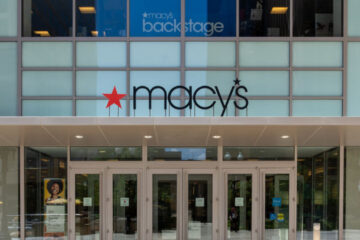The richest man in the world has become very political.
Elon Musk wants to completely change the business world.
He wants to rewrite all the rulebooks and revise all the traditional norms that have governed this world so far.
The billionaire hates conventions. He doesn’t wear CEO titles to begin with. At Tesla (TSLA) – Get Tesla Inc. Report, he calls himself “TechnoKing.” At Twitter (TWTR) – Get Twitter Inc. Report, which he has just acquired, he has chosen the title of “Chief Twit.”
The serial entrepreneur is also fond of public spats while his peers do everything to avoid any risky exposure for fear of their shareholders and boards of directors. Musk doesn’t care. He does not hesitate to fight back when he feels attacked on social networks. He even likes it.
Musk got rid of the communications department at Tesla. He responds directly to information, rumors, speculation involving the manufacturer of electric vehicles. He is the chief communications officer.
Cautious Advertisers
And this year, the Tech tycoon has also ventured into politics, taking advantage of the mistrust of the population towards elites and institutions. And it has worked for him rather well as his influence has grown at lightning speed. He became a global CEO, playing diplomat, for example, in the Russia-Ukraine war.
This conflict constituted the first appearance and rise of Musk in the world geopolitical scene. He gave his support to Ukraine, breaking with the tradition which wants business leaders to remain neutral in political affairs for fear of angering some of their customers or losing access to very important markets.
But Musk sees global issues to be part of his mandate, as someone who wants to change civilization as we know it today.
Since completing the acquisition of Twitter, the de facto town square of our time, a lot of passion has been unleashed. On the left and the right, everyone is waiting to see what the content moderation policy will be. Basically, which tweets will be acceptable and which will not.
After the capitol events of January 6, 2021, many platforms tightened their policies on acceptable content due to political pressure from individual uses and civil rights associations.
As part of the shift, Twitter, at the time, banned former President Donald Trump along with accounts of right-wing extremists and conspiracy theory movements.
“After close review of recent Tweets from the @realDonaldTrump account and the context around them–specifically how they are being received and interpreted on and off Twitter–we have permanently suspended the account due to the risk of further incitement of violence,” Twitter said on January 8, 2021 when it executed the permanent ban.
Musk, who defines himself as a “free speech absolutist,” says he is against permanent bans and has therefore promised that he will notably reactivate Trump’s account.
In response, advertisers have recently expressed their fears that the platform will once again turn into a hellscape. About a dozen advertisers asked ad-buyer GroupM to suspend their ads on Twitter in the event that Donald Trump’s account was reactivated, according to the Wall Street Journal.
Pressure
General Motors has temporarily suspended its ads on the social network Twitter, a spokesperson told TheStreet.
“We are engaging with Twitter to understand the direction of the platform under their new ownership,” David Caldwell, a GM spokesperson, said. “As is normal course of business with a significant change in a media platform, we have temporarily paused our paid advertising.”
Musk promised advertisers on Oct. 27 that there will be consequences for those who cross the limits on Twitter. He has set up a council responsible for defining content policy, but no decision will be made before the midterm elections scheduled for November 8, Musk has assured.
“Twitter obviously cannot become a free-for-all hellscape, where anything can be said with no consequences!” he wrote to advertisers.
However, the billionaire now seems to have locked into a course. This may prove to be a challenge for advertisers. Musk just organized a poll on Twitter in which he asked users to vote on whether advertisers should support free speech or political correctness.
In essence, he was trying to make a point that the companies which decide to suspend their ads once he has implemented his free speech content policy will have chosen political correctness. He gave no third option, in a clear way of saying that the moment of neutrality was over. It is the beginning of a new era. A era where, in the question of free speech, each individual, and each company must choose a side.
The poll, opened on November 2, attracted more than 2.75 million voters. The gap in the final result was overwhelming. 78% of the people voted that companies should support free speech.
Musk and Polls
The billionaire has not yet commented on the poll results. But the poll results give Musk the legitimacy he needs to put in place the policy he has often spoken in favor of: free speech above all.
The mogul uses Twitter polls as an important data point for big decisions. In March, he asked users for their thoughts on the future of Twitter. A few days later, he made an offer to acquire the social network for $44 billion.
The sale of his Tesla shares a year ago is another example that shows him adopting this process of legitimization.
Advertisers and companies have been warned.


